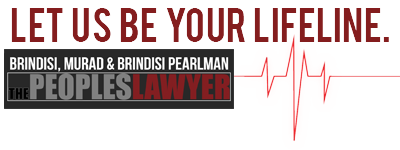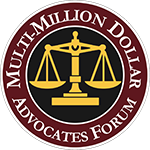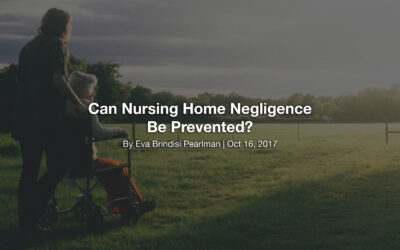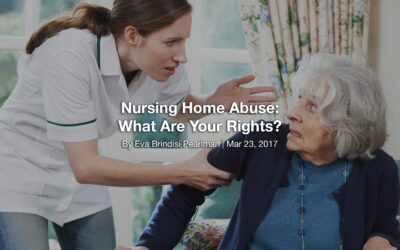Nearly two million Americans reside in long-term care facilities, or nursing homes as they have come to be known. When a loved one lives in a long-term care facility, it is normal to feel concerned about their treatment. Federal nursing home laws state that the nursing home, “must provide services and activities to attain or maintain the highest practicable physical, mental, and psychosocial well-being of each resident in accordance with a written plan of care.” These regulations define nursing home neglect and abuse as:
Abuse: “The willful infliction of injury, unreasonable confinement, intimidation, or punishment with resulting physical harm, pain or mental anguish.”
Neglect: “Failure to provide goods and services necessary to avoid physical harm, mental anguish, or mental illness.”
Types of Abuse
Abuse is not just physical and can come in the shape of various forms. Types of neglect and abuse include:
- Assault and battery (including slapping, kicking, pushing, pinching, beating, shaking, threats, and verbal or emotional abuse)
- Lack of care for existing medical issues
- Prolonged or continual deprivation of food or water
- Rape or other forms of sexual assault or battery
- Irrational physical restraint or seclusion
- Use of a physical or chemical restraint or psychotropic medication for any purpose that is inconsistent with a physician’s advice.
Abuse and Neglect Prevention
Nursing home injuries can be easily prevented. The nursing staff should be readily equipped with all necessities to care for each patient, including those with limited mobility. High-risk patients should be checked frequently. The staff should also pay attention to the nursing home environment. Any sanitary issues or safety concerns must be resolved immediately. Furthermore, the resident’s mattress should be flush with the bed frame to prevent the patient from suffocating between the mattress and the bed. The patient should be monitored for changes in mobile or mental ability, as well as any emerging medical concerns. The prevention of injuries is certainly a combined effort by both the nursing staff as well as the patient’s loved ones. Understaffed nursing homes need effective communication between family members and nurses to ensure the best elderly patient care.
Signs of Abuse and Neglect
Identifying nursing home negligence warning signs can be difficult. Depending on the type of abuse or neglect, there may not be any physical signs to look out for. In addition, behavioral changes may be hard to identify, especially if family members do not live close by or are unable to visit often. Sometimes, unusual behavior or appearance go undetected unless you see your elderly loved one on a frequent basis. As such, it is important to arrange with as many family members and friends as possible to visit elderly patients, as regularly as possible. If the elderly patient is unable to communicate and express concerns, identifying signs of nursing home negligence is even more difficult. However, here are various signs to watch for:
Physical Abuse
- Unexplained cuts, bruises, welts, sores, or burns
- Infections
- Sudden weight loss or weight gain
- Dehydration
- Grip or rope marks around the wrists or ankles
- Refusal to discuss how the injuries occurred or dismissive attitude about injuries
- Unsanitary living conditions
- Poor grooming and hygiene
- Unusual changes in behavior (sudden fear of being touched, etc.)
- Desire for isolation from others
- Instances of the resident wandering
- Injuries needing emergency treatment or hospitalization
- Heavy medication or sedation
- Resident is frequently ill
- Unexpected or unexplained death of the resident
Psychological Abuse
- Withdrawal or distraction from normal activities
- Being uncommunicative or unresponsive
- Acting fearful or suspicious for an unseen reason
Gross Neglect
- Lack of proper nutrition and basic hygiene
- Untreated bedsores or other wounds
- Weight loss
Financial Abuse
- Unusual bank account activity, like large, unexplained withdrawals
- Various accounts, property, or control of assets being changed to someone else’s name
- Signatures on checks that do not match the resident’s signature.
Sexual Abuse
- Unusual vaginal or anal bleeding
- Sexually transmitted diseases or infections
- Torn or bloody undergarments
The Next Steps
Say the unfortunate occurs and you realize your loved one is being abused in a nursing home. Before contacting a lawyer for nursing home negligence, there are other actions you may take:
- Emergency treatment (If necessary)
- Try to discuss the abuse with the victim – Though they may be reluctant, it is beneficial to keep an open line of communication
- Record all signs of abuse and/or neglect – If you visit your loved one and she looks disheveled, record the date you visited, her exact condition, any comments she makes, etc.
- Gather as much information about the incident and the people involved in the incident as possible including names and addresses
- Report the neglect to the nursing home administrator
- Report the neglect and abuse to the New York State Department of Health
- Contact the police
- Call Brindisi, Murad, Brindisi & Pearlman…The People’s Lawyer
Brindisi, Murad, Brindisi & Pearlman are your lawyers for nursing home negligence. Elder abuse is both morally wrong and a criminal offense that can result in a nursing home lawsuit. As personal injury lawyers, BMBP is both skilled and sympathetic, and ready to be an advocate for the rights of your elderly loved one. We are lawyers with nursing home litigation experience and are ready to fight for you. Your claim of medical negligence is important to us. If you or a loved one has suffered from nursing home abuse, fill out a contact form to get in touch for a free consultation today.
Share this blog with your friends…
Tags: Nursing Home Negligence

CONTACT US FOR A FREE CASE EVALUATION
Related Blogs
Can Nursing Home Negligence Be Prevented?
The 2010 census reported that over 13% of the population in the United States is over the age of 65. This number is expected to rise in the next 40 years. With the amount of elderly being so high, many need cared for, including in nursing homes and assisted...
Nursing Home Abuse: What Are Your Rights?
As your loved ones’ age, some may have to be admitted to a nursing home. In fact, 40 percent of adults in the United States will enter a nursing home at some point in their lives. You want and expect the best care for your aging family member, but what happens...
Injured In An Accident?
Contact BMBP Today!






BRINDISI, MURAD & BRINDISI PEARLMAN
UTICA OFFICE
Utica, NY 13501
OFFICE HOURS
MONDAY – FRIDAY
9AM-5PM

